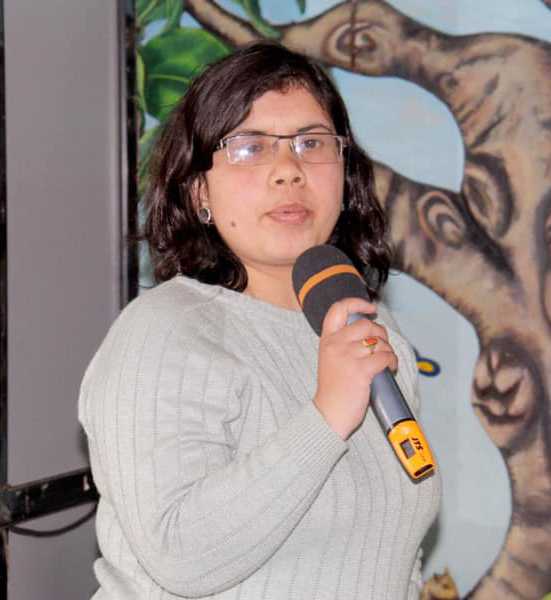About The Founder

With more than 10 years of on-the-ground experience working with blind women or in overall cross-disability issue in Nepal, I have understood that a comprehensive project addressing the social, cultural, political and economic empowerment of marginalized women with disabilities is the most effective approach to tackle the challenge faced by them. I am Ichhya K.C a Nepali blind woman who have experienced marginalization on the basis of being a visually impaired person. My own experiences and other blind women’s life stories motivate me to work for the rights of women with disabilities as well as of women in general. I have discovered that single-blind women (unmarried, divorced, widows) are stigmatized and discriminated due to a strictly patriarchal society and negative mind -set on disability. Blindness is seen as a weakness and blind people are made to be dependent on their relative’s care, thus turning them into a burden. In general, women are considered a second class citizen. In such a society, women with disability are pretended to be unsuited for becoming wives and mothers. Single blind women are excluded socially, politically and economically. I have experienced such a societal negative attitude on my blindness for 25 years. But I feel that “more problems you face, the stronger you will be”. At the age of 5, I was diagnosed with partial sightedness due to glaucoma, which would eventually lead to becoming fully blind. Upon hearing this, my mom broke down, but at that time, I could not understand why.

Our Nepali society believes that having a blind daughter is a curse because they are useless and a burden for everyone. At the age of 10, I was rejected from enrolling at a local school because of blindness. Seeing others and my own sister going to school made me very sad. It took me one and a half years to stand up for myself. I faced at my parents one day and told them to stop wasting money or not to pamper me but send me back to school. I understood the many possibilities around and ahead of me. During my third year in college, the journey hit another bump when my lovely father died. Meeting basic needs at home became a challenge. Despite having a postgraduate, I have turned away from several job opportunities. On those days, my eye vision is decreasing but in the same way, my life vision is increasing. The struggle and obstacle taught me a lesson about life. In childhood, my aim was to be a doctor and serve to poor patient. But when I realized my blindness then I have started to see myself as a social doctor. Hence, I was engaged in the disability sector and did volunteer. During that time, I have met hundreds of blind women who were struggling to meet even basic needs such as food and shelter. Thus, being a single blind woman, I have experienced discrimination as well as perceived discrimination of others.
Now my mission is to prove the society that single-blind women are also capable to find their own identity and way of life. For this, I have decided to establish Pahichan, which means identity, for single and marginalized women with disabilities in Nepal. After 7 months international leadership training 2018 of kanthari institution in Kerala, India, I have legally registered Pahichan-Nepal. It is affiliated in Kathmandu Central District Office, Social Welfare Council and Tax office. The communal house I have spearheaded, where blind women can live and work for dignified lives is the core of Pahichan. Rehabilitation and rights, empowerment and education, advocacy and accessibility, livelihood and life with identity are the approach / working area of Pahichan. I believe that independence is crucial for a person to build courage and confidence.
